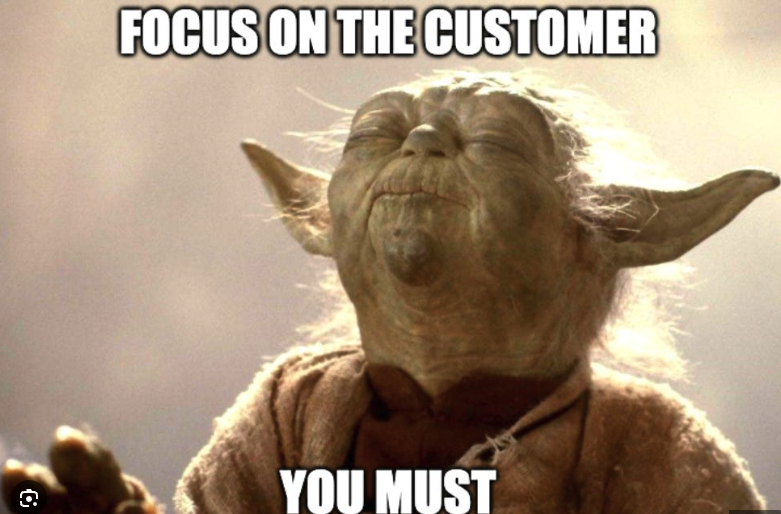I used to just get so confused for understanding how do I actually incorporate a culture of powerful customer obsession that big companies like Amazon, Airbnb, Stripe speak so strongly about.
What does it mean? How does that change your workflow? What small optimizations can you do that can ensure you become such a company?
Yeah, you don't need a dedicated team for that - I want to list simple things you can do as a solopreneur in a garage as well.
Here's 4 learnings that I've had, from my current and previous startup, on how to build a reflex muscle for customer obsession, from 120+ overall interviews I've done.
0] an intro to the topic
Customer-centricity means you just know so much about the customer, that when you take decisions about product, you can tell exactly how your customers will react to it.
It's important because it builds very great relationship with them and they will stand by your team and product even when things don't work out that well.
1] 5hrs of talktime per week
If you're having less than 5hrs of talktime with customers, that means you either know everything about them or you need to find a different set of people to talk to, who're willing to spend time to discuss the problem.
Easy ways to get this:
- Start by just asking your friends for people in their companies or families for a call and ask them to connect further. If you don't know anyone, just cold reachout your competitors' customers on Linkedin
- Just ask for 25min calls. They seem shorter than 30 for some reason so I've seen people say yes and then give you the extra 5.
- Ask them to not refer to "anyone", but "1 name" that they can think of - this is fast, and has 100% success rate.
- Setup a communication channel on a platform they're most comfortable on. (Whatsapp, Telegram, Discord etc.) where you can just keep talking to them as friends
2] Less than a day of turnaround time
When you're a young company, you can provide near instanteneous customer support and that goes a long way in turning early adopters into evangelists. This is simple - just have them as priority notifications and swear you will reply something the moment you see a popup. Direct lines with founders who ping back quick feel very nice.
3] Organizing their feedback
This is the most important part. I'm sharing my company's template for this. It's just colorful stickies you can move around, but captures certain key snippets across multiple customers really well.
Just pick key sentences they say, tag and color them well - really helps a lot. Here's an example
At our company Recontact, we're helping people be amazing at building long-term relationships in professional and personal settings
Using this strategy, we figured out (check video) that "Maintenance" (i.e. keeping in touch with people) - was the most talked about point in our problem statement - because it had more stickies. And that realization saved us from spending 2 weeks worth of time in making "Search" in our app more efficient - because that's not what our customers cared about.
So yeah, that coloring and legend-making you did as a kid - well that's one of the key components in making a customer-centric business.
4] Building a muscle for the info
Revise, revise, revise. This, I learned from Apple CEO Tim Cook - who starts his day with reading random customer emails. Well, you can always read these stickies. Look into a simple analytics dashboard you can create for your app. - template link
You won't see it instantly, but, over time, a decision-making muscle gets built (very much like driving, music, fashion-sense) - that is very grounded in qualitative and quantitative analysis of customer feedback.
Listen to even the smallest details - you might not remember instantly, but then you'll be surprised how often you'll randomly remember a customer fact, when making a decision related to it.
In closing
You can be crazy passionate about this too - write customer snippets on your wall, listen to customer interviews at the gym, be thoughtful with delighting gifts, send personalized notes when their kids graduate etc. etc. etc.
Bottom line - Be close to the customer, even though the product will not work out, your company will. Business runs on trust and mutual respect.


